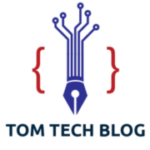The Future of SEO: What Digital Marketers Need to Know

Search Engine Optimization (SEO) has always been a dynamic field, constantly evolving to keep pace with technological advancements and changing user behaviors. As we look towards 2025, the landscape of SEO continues to shift dramatically, presenting both challenges and opportunities for digital marketers. In this rapidly changing environment, staying ahead of trends isn’t just beneficial—it’s crucial for maintaining a competitive edge.
We’ll explore the key trends shaping the future of SEO, including how advancements in artificial intelligence, voice search, and personalised algorithms redefine digital marketing strategies. We’ll examine the impact of AI-driven tools and search engine technologies on content creation and search rankings, highlighting the growing importance of optimizing for mobile-first indexing and conversational search patterns.
Additionally, we’ll explore SEO’s role in niche industries and discuss emerging tools and data-driven practices that enable marketers to stay ahead of the curve.
Emerging SEO Trends in 2025
AI and Machine Learning in Search Algorithms
The integration of artificial intelligence and machine learning into search algorithms has revolutionized the way search engines understand and rank content.
Google’s Multitask Unified Model (MUM), for instance, represents a significant leap forward in search technology. Unlike its predecessors, MUM can understand and generate language, interpret images, and even grasp the intent behind complex, multi-layered queries.
For digital marketers, this means a shift away from traditional keyword-centric strategies towards a more holistic approach to content creation. The focus is now on developing comprehensive, in-depth content that addresses user intent from multiple angles. MUM’s ability to understand the context and draw connections across different types of media also emphasizes the importance of multimedia content in SEO strategies.
Voice Search and Conversational Queries
The rise of virtual assistants and smart speakers has led to a surge in voice-based searches. By 2025, optimizing for voice search has become a critical component of SEO strategy. Voice queries tend to be longer and more conversational than typed searches, often taking the form of complete questions or commands.
To adapt to this trend, marketers focus on long-tail keywords and natural language patterns. They’re also optimizing content to provide direct answers to common questions, increasing the chances of being featured in voice search results. This shift towards conversational search is also influencing the way content is structured, with a greater emphasis on FAQ-style formats and conversational tone.
Mobile-First Indexing and Core Web Vitals
With the majority of internet traffic now coming from mobile devices, Google’s mobile-first indexing has become the norm. This means that the mobile version of a website is considered the primary version for indexing and ranking. In conjunction with this, Google’s Core Web Vitals—a set of metrics that measure user experience factors such as loading speed, interactivity, and visual stability—have become crucial ranking factors.

Digital marketers in 2025 prioritize mobile optimization more than ever. This includes ensuring responsive design, fast loading times, and smooth interactivity on mobile devices. The focus has shifted from merely having a mobile-friendly site to providing an exceptional mobile user experience that aligns with Core Web Vitals standards.
The Growing Role of Personalized Search
Personalization has become a hugely important part of search engine functionality. Search engines now consider a user’s location, search history, and behavioral patterns to deliver highly tailored results. This trend towards personalised search has significant implications for SEO strategies.
Marketers are now developing more granular, targeted content to cater to specific user segments. This involves creating variations of content that address different user intents, locations, and stages of the customer journey. Local SEO has gained even more importance, with businesses optimizing for hyperlocal searches to capture nearby customers.
The challenge for marketers lies in balancing broad appeal with personalized relevance. Strategies now include creating adaptive content that can be dynamically adjusted based on user signals and leveraging structured data to provide search engines with more context about content.
SEO for Niche Industries
As search algorithms become more sophisticated, there’s an increasing opportunity for businesses in niche industries to compete effectively in search results. This is particularly evident in highly competitive sectors such as online gaming and e-commerce.
Take, for example, the online casino industry. In this fiercely competitive market, SEO has become a critical tool for attracting and retaining customers. Online casinos use advanced SEO techniques to rank for competitive keywords like “£10 no deposit bonuses” or “best online casino offers.”
The strategy goes beyond simple keyword targeting. These businesses are creating comprehensive content ecosystems around their offerings, including detailed guides on how to use bonuses, comparisons with competitors, and user testimonials. They’re also leveraging user-generated content and reviews to boost their credibility in the eyes of both users and search engines.
This niche-focused approach demonstrates the importance of understanding your specific audience and tailoring your SEO strategy accordingly. It’s no longer enough to compete for broad, generic terms. Success in 2025’s SEO landscape requires a deep understanding of your niche and the ability to create highly relevant, valuable content for your specific audience.
Advanced SEO Tools and Technologies
The evolution of SEO has been accompanied by the development of sophisticated tools and technologies designed to aid marketers in their optimization efforts. AI-powered tools have become indispensable in the SEO toolkit of 2025.
Content creation and optimization tools like ChatGPT, Blaze and Jasper have altered the way marketers approach content development. These AI writing assistants can generate human-like text, help with keyword research, and suggest content ideas based on current trends and user interests. However, it’s important to note that while these tools are incredibly useful, they’re most effective when combined with human creativity and strategic thinking.

SEO platforms like Surfer SEO have taken on-page optimization to new heights. By analyzing top-ranking pages and providing data-driven recommendations, these tools help marketers create content that’s optimized not just for keywords but for overall topical relevance and depth.
Data analytics has also become more sophisticated. Marketers can now track and analyze user behavior at a granular level, providing insights that inform every aspect of their SEO strategy. Predictive analytics anticipate trends and user needs, allowing for proactive rather than reactive SEO strategies.
Ideal Practices for 2025
As we navigate the complex SEO landscape of 2025, certain best practices have emerged as essential for success:
- Mobile-first content: With mobile-first indexing being the norm, ensure that your website provides an exceptional mobile experience. This goes beyond responsive design to include optimizing for mobile-specific user behaviors and preferences.
- AI tools for optimization: Embrace AI-powered tools for content creation, keyword research, and on-page optimization. However, these tools should be used to augment, not replace, human creativity and strategic thinking.
- Long-tail and conversational keywords: As voice search and conversational queries become more prevalent, optimize for natural language patterns and long-tail keywords that reflect how people actually speak.
- Comprehensive, multi-format content: With AI like MUM, understanding context across different types of media creates rich, diverse content that includes text, images, videos, and other multimedia elements.
- User experience: Pay close attention to Core Web Vitals and other UX factors. A positive user experience is now directly correlated with better search rankings.
- Personalization: Develop strategies to create and serve personalized content based on user location, behavior, and preferences.
Remember, while the tools and techniques of SEO may change, the fundamental goal remains the same: to connect users with the most relevant, valuable content that meets their needs. By keeping this principle at the heart of your SEO strategy, you’ll be well-positioned to succeed in the dynamic digital landscape of 2025 and beyond.



